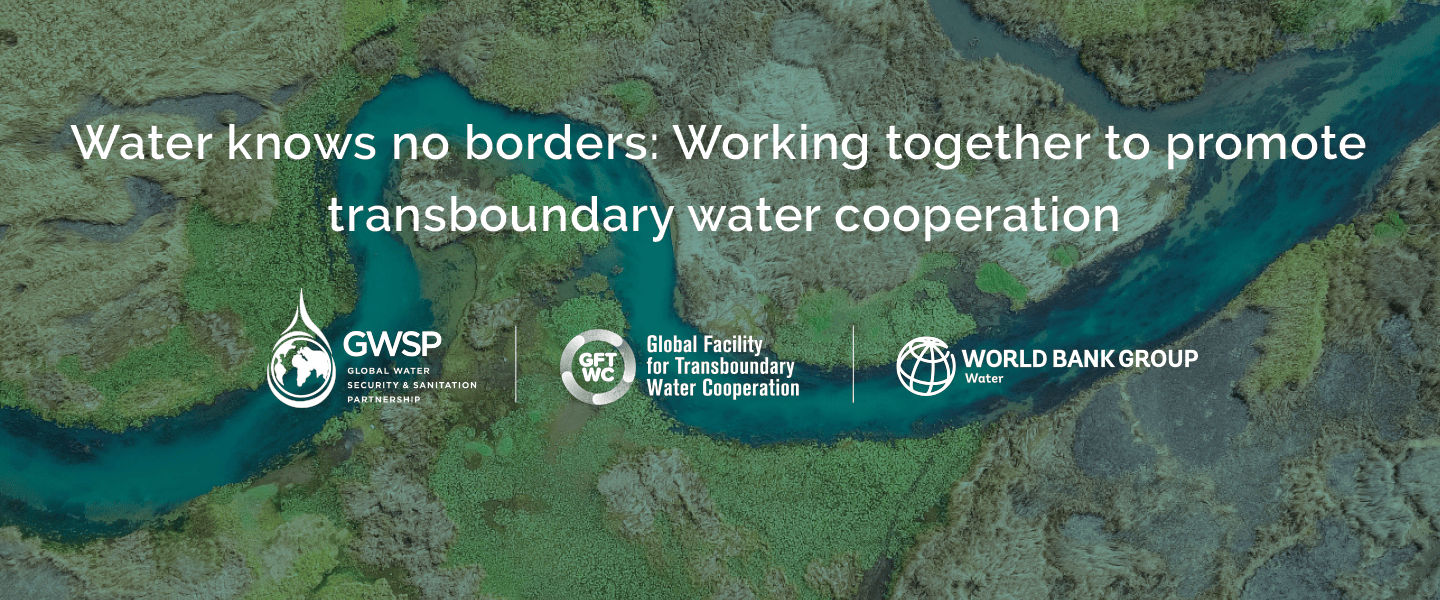What is the Global Facility for Transboundary Water Cooperation?
The Global Facility for Transboundary Water Cooperation aims to promote cooperation around shared freshwater resources. The Facility serves as a mechanism to scale up support from the World Bank and its partners for regional and national actors who seek to collaboratively manage transboundary waters in the face of urgent development challenges and climate change. It brings together specialists from a range of disciplines to help recipients understand technical challenges and identify potential transboundary solutions. The Facility's objective is to develop targeted knowledge, tools, operational support, and financing for cooperative transboundary water management and development when requested by riparian countries.
The Facility is an initiative of the Global Water Security and Sanitation Partnership (GWSP). GWSP is a multi-donor trust fund administered by the World Bank’s Water Global Practice. It supports client governments in achieving water-related Sustainable Development Goals by generating innovative global knowledge and providing country-level support. The Facility is administered by a Secretariat in the Water Global Practice of the World Bank.
Why is the Global Facility for Transboundary Water Cooperation needed?
Current levels of transboundary cooperation are limited in many areas, not capturing existing opportunities, nor sufficiently mitigating risks to transboundary resources. Only 24 nations have operational arrangements for water cooperation for all of their basins that are shared with neighboring countries, as reflected in the second round of reporting on SDG indicator 6.5.2 on transboundary water cooperation. Cooperation on transboundary aquifers is even less advanced: SDG 6.5.2 monitoring shows that there are just eight aquifer and groundwater-specific arrangements worldwide.
Peaceful and effective cooperation to develop shared waters sustainably is an important public good. Incentivizing and subsidizing transboundary water cooperation is a significant contribution to sustainable development, biodiversity conservation, and climate mitigation and adaptation in many of the world's most vulnerable and fragile regions. While multilateral and bilateral organizations currently offer a range of services to countries aiming to advance transboundary water management, more is needed to meet the scale of the issues facing client countries. Transboundary waters extend beyond national jurisdictions and their policy-making structures, meaning that effective policy responses require international collective action. Coordinated global action and multi-partnership engagement have the potential to identify and leverage these opportunities for development. At present, international and regional efforts aimed at addressing these challenges and opportunities are limited compared to the overall needs and, where they do exist, they can lack coordination.
More can be done to coordinate these efforts, to work together to maximize each international institution's strengths, and to offer a more cohesive package of assistance to countries sharing water resources. This includes coordinating efforts to raise more funding specifically dedicated to transboundary water cooperation, as well as technical support. The Facility complements and amplifies ongoing efforts by the World Bank and its partners in promoting transboundary water cooperation. By consolidating resources and expertise, this collaborative approach promises to address the complex and pressing issues surrounding shared waters, contributing to a more sustainable global water management landscape.
Learn more about related services and programs:





